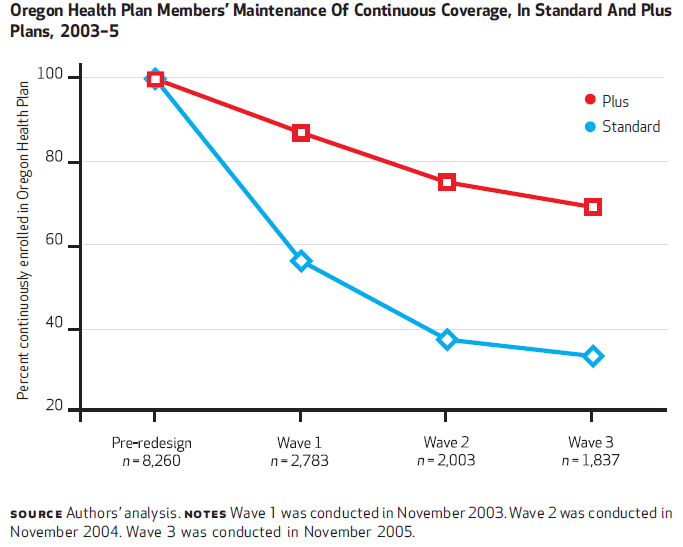
What behavior change interventions have been implemented with regard to this behavior?
State-level policies that enhance Medicaid benefits offered to Medicaid-eligible individuals may increase enrollment in Medicaid.
Describe the interventions
Research is beginning to indicate that state-level Medicaid policies play an important role in increasing Medicaid enrollment. The states with the most generous Medicaid benefit programs generally have the highest enrollment among adult elderly and non-elderly individuals. This field of study is limited, and the research has generally been based on predictive models that compare enrollment across states and attempt to simulate how enrollment would increase if Medicaid benefits were more generous. The predictive models suggest that benefits can generally be improved in the three ways that will increase enrollment among both adult elderly and non-elderly Medicaid-eligible individuals. Those three enhancements are:
-Reducing the out-of-pocket expenses like co-pays and deductibles that Medicaid enrollees must pay;
-Covering a broader range of medical services like dental services;
-Increasing provider reimbursement for doctors treating Medicaid patients.
Dropout grows as out-of-pocket expenses increase and provider reimbursement decreases
Similarly, research suggests that as out-of-pocket expenses for Medicaid enrollees increase, dropout among Medicaid eligible children increases. In 2003, Oregon began required certain Medicaid-eligible individuals to share a larger percentage of the costs of their health services through premiums and co-pays (and dropped their benefits if they did not pay those premiums), disenrollment from Medicaid among those individuals skyrocketed. Most dropout occurred immediately following implementation of the new, higher premiums, which indicated that the higher costs led to the dropout.

Another study found that as physician reimbursement decreases for services provided to Medicaid patients, dropout among Medicaid-eligibles grows. The researchers posited that since fewer providers accept Medicaid, Medicaid enrollees have more trouble finding an appropriate doctor so they drop out of the benefit.
Describe groups that have benefited from the various evidence-based intervention
As previously discussed, Medicaid enrollment among eligible individuals has increased for both adult elderly and non-elderly eligibles when benefits have been enhanced. Similarly, when benefits are reduced, Medicaid enrollment among children decreases.
RE-AIM ELEMENTS:
- R:Reach
- E:Efficacy
- A:Adoption